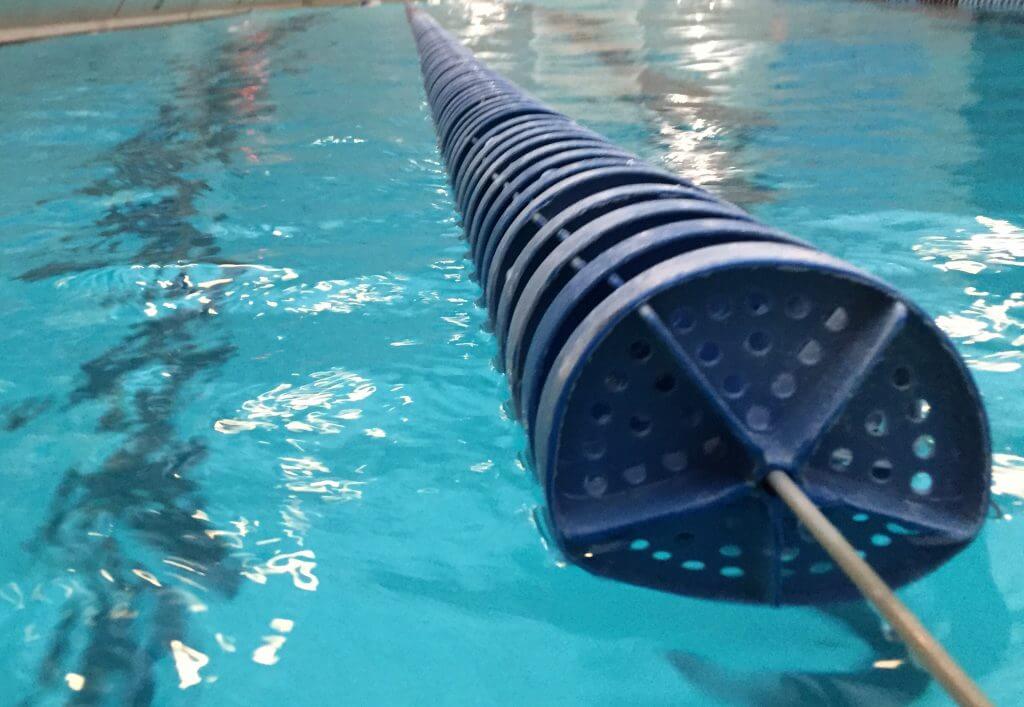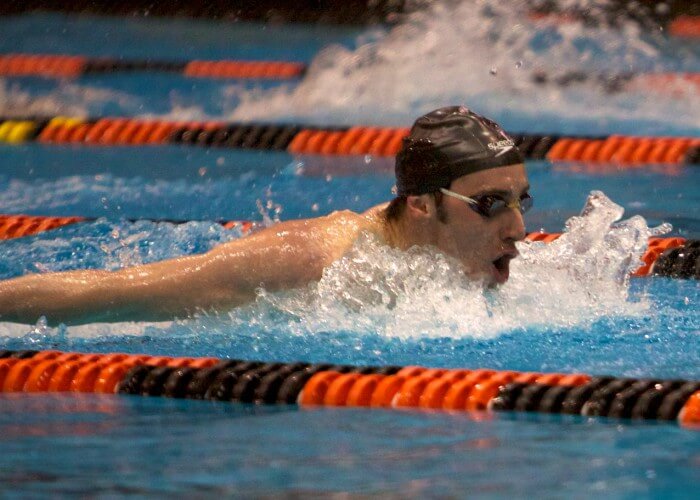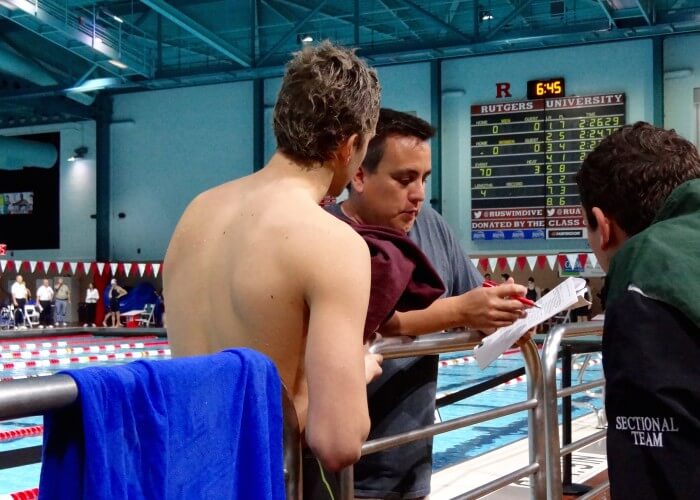A Guide to Taper and Trusting Your Training

By Brian Honicky, Swimming World College Intern
Every swimmer knows the familiar feeling in the pit of their stomach as the end of the season starts to creep up on them. During peak training, practices seem never-ending, but before you know it you’re two weeks out from championship season and taper is starting.
Most people can tell you that taper season is crazy in a number of ways. Your body is going through training changes, practice structures are completely different, and your mind has to keep up with all of it. Trying to make sure that each and every little thing that you’re doing in practice is perfect can be incredibly stressful, and every swimmer reacts differently to the challenge.
It may seem easy to get overwhelmed in this type of an environment, but I am a firm believer in the importance of a strong mentality before and during taper. You can never foresee what’s going to happen during this time. The only thing that’s guaranteed is that there will be highs and lows, but positivity and trust over everything else are the most important keys to success.
Preparation
Take my most recent season for example. I swim for an exceptionally large team, so large that we taper for two different championship meets, half to one invitational and the other half to the conference championships three weeks later. Originally, I was on the first half of the team, shaving and tapering for the first invitational. I was pumped to finally race at my full potential for the first time on my new college team, and I took the opportunity very seriously.
I focused on every little detail of my stroke, my splits, and my lifestyle changes in order to ensure my best performance at the meet. I trusted that the training I’d put in would be enough for me to succeed, and it worked! I had a great meet, went a bunch of best times, and was very satisfied with the end of my season. My highly anticipated break from training was here, and I planned to stay out of the pool for at least a few weeks to make the most of it.

Photo Courtesy: Brian Honicky
To my surprise, my time of laziness was abruptly cut short when I received a call from my coach while sitting in the library five days later. One of the conference team swimmers had contracted mono two and a half weeks before the meet, and he was asking me to join them in competing on the conference team.
I remember his words clearly, “You should probably get in the pool and at least stretch out…today.” I knew that it was an opportunity that I couldn’t take lightly, but one that would present a major challenge. I had been out of the pool for almost entire week and I was being asked to contribute to our biggest meet of the year in a few short weeks. Needless to say I had a nervous knot in my stomach for a few hours afterward. I had come off of a successful taper already, and I had no idea how I would feel getting back in the water.
Trust
I had no choice but to buckle down and focus on retraining my body one day at a time. There were days that I felt completely awful in the water, when I truly doubted whether or not I would be able to perform to the best of my ability. After talks with my teammates and coaches, one thing was clear to me. Trust was going to get me through a second taper and and an even more demanding meet schedule.

Photo Courtesy: Kalina DiMarco
First and foremost, I had to trust in my coach’s belief that I was capable of succeeding after having been out of the water. I had to trust in all of the training that I had put in for the past several months. The long course I.M. sets and early morning doubles were not going to be for nothing. Finally I had to trust in my own abilities to remain present and block out self doubt. There was no use in worrying about what would happen when I dove in for the second time, I just had to know that I could and would do everything it took to prepare and put myself in the best possible position to succeed.
When all was said and done, it all paid off. I had just as good of a second taper meet as I did a first one.While I was behind the block, I completely forgot about stress, the fact that I had worn the tech suit already, or the races I had swam three weeks before.
Once again, I just trusted that the work had already been put in, and knew that racing would come easily to me. I think that preparation is really the most important aspect of a good taper season. The practices leading up to a big meet are an opportunity to block out anything else that’s going on in your life at the time and focus on fine-tuning the craft that you’ve trained all year for. If you’ve prepared properly, by the time it comes to get up and race, all you’ll need to think about is swimming fast.



